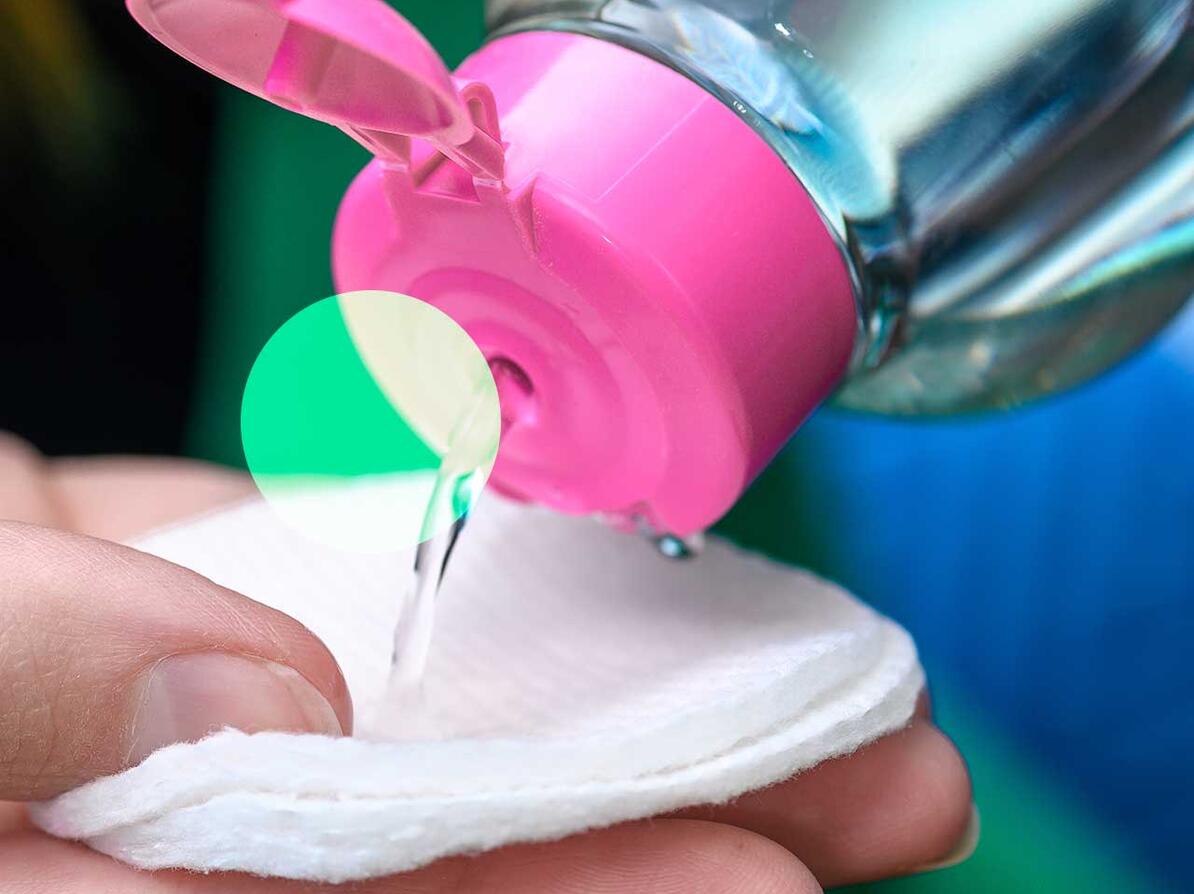Micellar Water: These Are Free from Unwanted Chemicals
If you are looking for a new micellar water to clean your skin, there are a few chemicals you may want to avoid.

Micellar water may contain allergens or other unwanted chemicals. Here you’ll find good choices for cleansing your face — without the problematic substances.
Micellar water is a simple solution for clean skin and has become a staple in many skincare routines.
Its appeal lies in being an all-in-one makeup remover and cleanser that doesn’t need rinsing. That means fewer steps to clean skin on busy mornings and evenings.
But what’s really hiding in your micellar water, which often looks just like water? In this test, we’ve examined the ingredients to find out whether micellar water contains chemicals that may trigger allergic reactions or have other unwanted health effects.
The Danish Consumer Council THINK Chemicals has reviewed the ingredient lists of 30 micellar water products available in supermarkets, stores, and online.

Key Findings from the Test
- There are many good micellar water options without unwanted chemicals for your skincare routine.
- Products with environmental and allergy certifications are all among the best-rated.
- Many products contain perfume or plant extracts that may cause allergies.
- A few products contain substances suspected of being hormone-disrupting or carcinogenic.
Micellar Water is Often Free from Unwanted Chemicals
Just under half of the tested products (13 out of 30) are completely free from unwanted chemicals. These receive the highest rating — the A-rating.
Several of the A-rated products carry the Nordic Swan Ecolabel and are certified by Asthma Allergy Nordic or Allergy Certified. Look for products with these allergy labels, if you want a good and easy choice to avoid problematic ingredients. In Denmark you can also look for the environmental label to avoid problematic ingredients.
Watch Out for Allergy Risks
12 out of 30 micellar water products receive a B-rating.
These products contain plant extracts or perfume, which may cause allergies. Over time, frequent exposure to such substances in skincare products can lead to allergies. If you’re already allergic, you may react immediately.
If you have sensitive skin or want to avoid allergy-triggering substances, choose a micellar water with an A- rating or check for certifications like Asthma Allergy Nordic or Allergy Certified.
You can also look for micellar water labeled as fragrance-free. According to legislation, these products must not contain perfume.
A Few Ingredients Stand Out
While many products perform well, five micellar waters in the test contain problematic chemicals — substances that are environmentally harmful, suspected hormone disruptors, or suspected carcinogens.
Products with one or more of these substances receive the lowest rating — the C-rating.
These substances aren’t necessarily dangerous on their own in micellar water, but combined with other chemicals you’re exposed to daily, they may pose long-term health risks. This is known as the cocktail effect of unwanted chemicals.
That’s why we recommend limiting exposure where possible — and skincare products are a great place to start. The test shows there are plenty of alternatives without these substances.
Overall Ratings
- 13 micellar waters are free from problematic substances and receive the best rating — the A-rating.
- 12 micellar waters contain perfume or plant extracts that may cause allergies and receive a medium rating — the B-rating. You may want to consider whether these ingredients belong in your micellar water.
- 5 micellar waters contain unwanted chemicals and receive the lowest rating — the C-frating. These include substances suspected of being hormone-disrupting.
How We Tested Micellar Water
-
A total of 30 products were purchased. The test is not necessarily representative of the entire market, as we focused on including many good choices in the test sample.
This is a declaration test, meaning we reviewed the ingredients listed on the packaging.
We looked for ingredients that are allergenic, suspected hormone disruptors, or environmentally problematic.
Product names and ingredient lists were sent to manufacturers to ensure the products weren’t outdated and that the ingredient information was accurate.
-
Here are the problematic substances identified:
- Polyaminopropyl biguanide – a preservative suspected of being carcinogenic, allergenic, and environmentally harmful. Found in two products.
- BHT – an antioxidant suspected of being hormone-disrupting. Found in two products.
- Cyclopentasiloxane – a silicone compound suspected of being hormone-disrupting and environmentally harmful. Found in one product.
- Ethylhexyl salicylate – a UV filter suspected of being hormone-disrupting. Found in one product.
- Sodium salicylate – a preservative/denaturant.